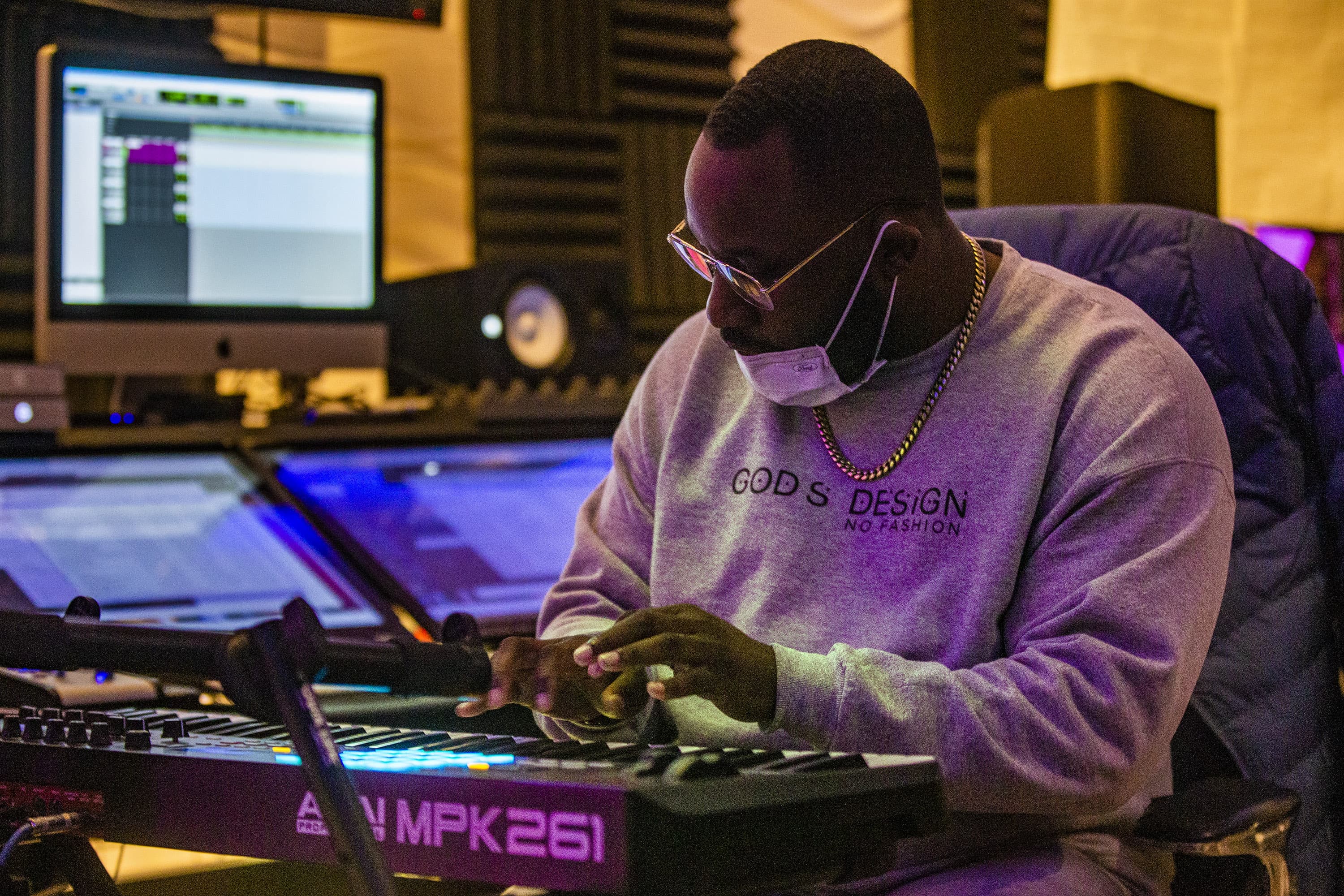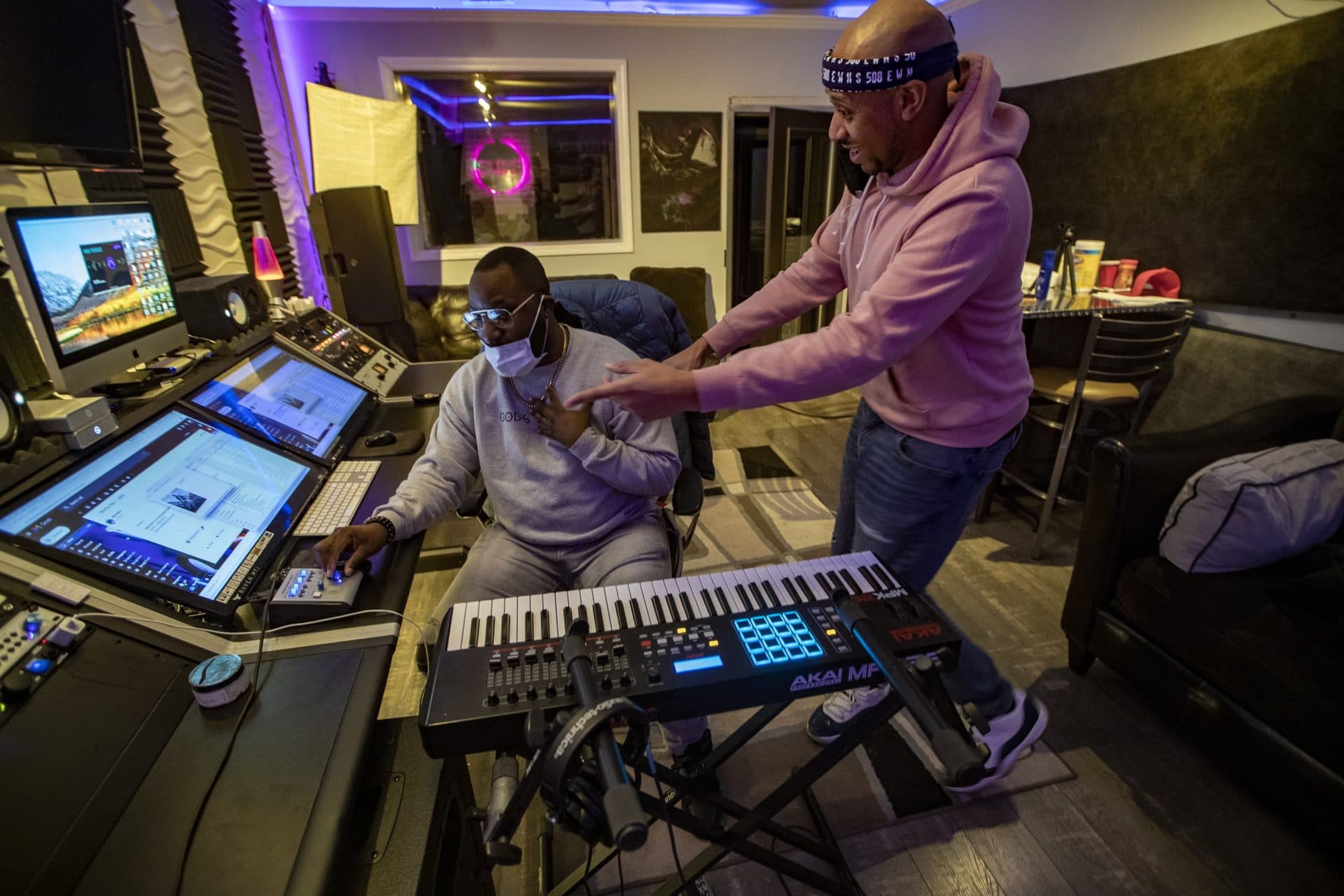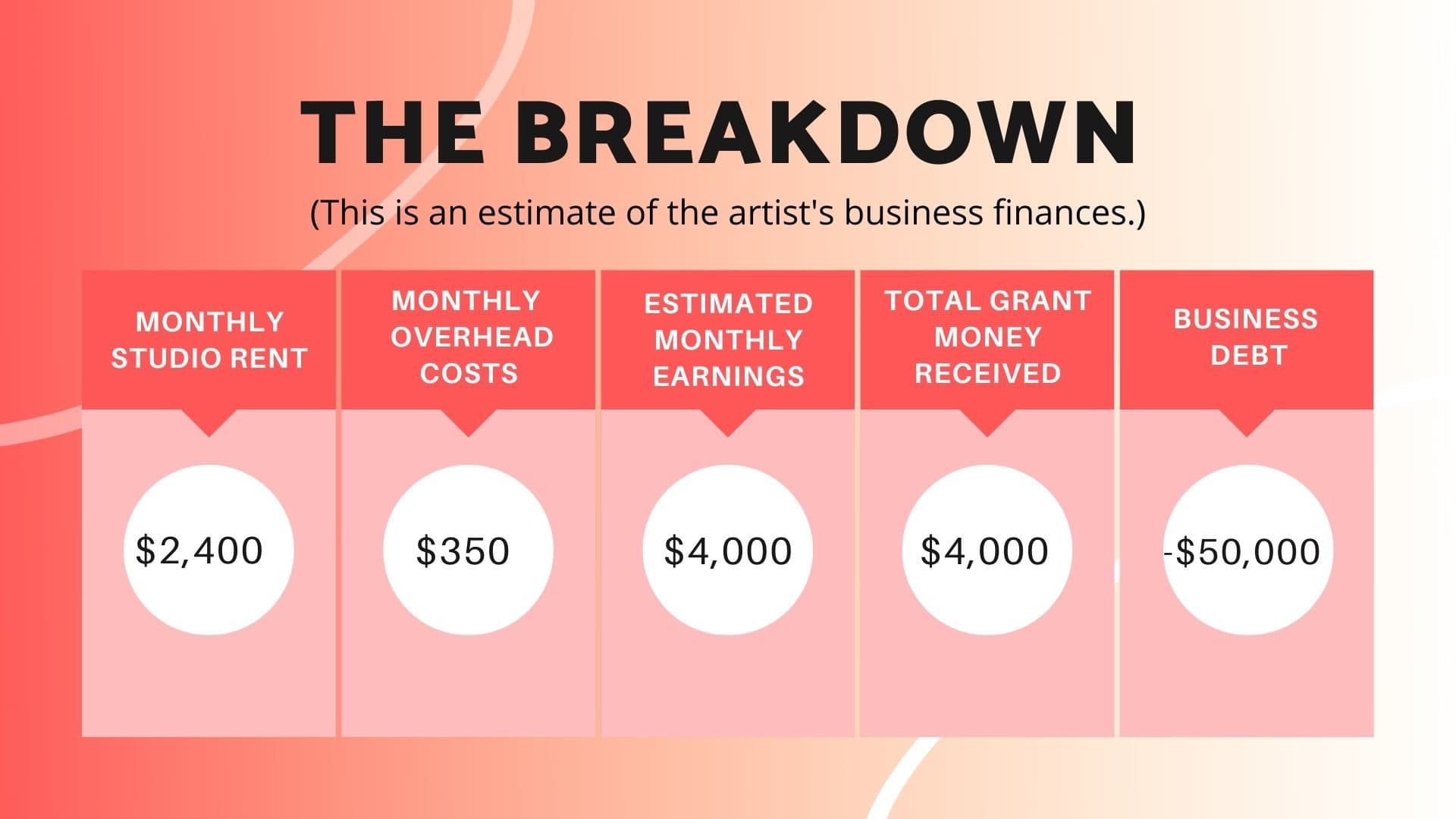Advertisement
The Creative Grind
After The Pandemic Shut Down His Recording Studio, He Had An Epiphany

It has been one year since the pandemic began. In "The Creative Grind" series, ARTery reporters spoke to individual creatives to assess the financial and artistic impact of COVID-19 in the Boston area.
The producer and musician International Show works out of a recording studio tucked at the back of a hidden storefront in Weymouth. It isn’t glamorous, but it has everything he needs: a computer, mixing console, recording booth and a little electronic keyboard that he plays when he wants to relax.
This is the place where Show, whose given name is Roy Studmire, makes his living. He is something of a jack of all trades: he rents the studio out to recording artists, mixes tracks and produces beats to license and sell. He also records his own music, hip-hop inspired by his Christian faith.
On a recent Wednesday afternoon, Show was, as usual, at the studio. His phone sat on the desk next to him, lighting up with texts from clients. Business was picking up, though it was nothing like it was before.
Like most businesses in Massachusetts, Show was forced to shut down last March. He was able to reopen a couple months later, though he worried at the time about accidentally exposing his young son to the virus. “He lives with his mom most of the time, because, you know, she works from home,” Show said. “That's kind of been one of the hardest parts of [the pandemic], not being able to see him as much as I usually do.”

The other hardest part, of course, has been the financial toll. Show fell behind in rent during the months his studio was closed. He already owed his landlord money, he said, for helping him renovate the studio, putting his total debt at nearly $50,000.
“That's something that a lot of people from the outside don't see,” he said. “The studio looks good... but in the back of my mind, there's still a tab that needs to be paid.”
Show said he was denied a COVID-19 Economic Injury Disaster Loan because of his credit history. He managed to get a few thousand dollars in grant money. The biggest boon was the federal extension of unemployment benefits to contract workers like himself.

Then, about six months ago, just as hope for a vaccine began to glimmer and Show’s business began to right itself, he decided to make a change.
“I was just meditating one day and it really kind of just hit me,” he recalled.
Show describes himself as a Christian hip-hop artist, but as a producer and engineer, he has always worked with anyone who asked. The pandemic changed all that. He realized he only wanted to produce work that was in line with his values. So, he decided to pivot his business to focus exclusively on the Christian music market.
“People were dying. I've had friends that passed away. And my church always has multiple funerals throughout the week,” Show explained. “I wanted to get behind and stand behind music that promotes a good emotion and has a positive outcome.”
He was careful not to cast judgment on the artists who worked with him in the past. “Who am I to judge how they are and their perspective?” he asked. “But I have my own journey.”
Advertisement
That decision came with a price. Show gave up most of his existing clients, and now estimates he pulls in around $4,000 per month — about half what he used to. It’s enough to cover the studio’s monthly overhead costs of $2,750, but doesn’t leave much to pay his rent, groceries and car insurance — nevermind pay off his debts.
Still, he believes it was worth it.
“The studio has evolved into just more than coming in and recording people and producing,” he said. “It's become a safe haven and a place of healing and emotion.”
The pandemic, it turned out, had delivered an unexpected gift — clarity about who he was and how he wanted to move in the world.
“This is where the faith part comes, because it's a really big step of faith,” Show said. “It's not just something that I just talk about: ‘Oh, I have faith.’ I really stretch and exercise and take giant leaps at a time, because in my mind, I see such a big vision.”
This segment aired on March 24, 2021.
